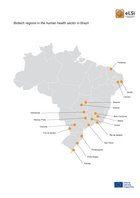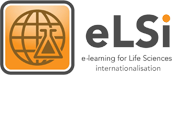enlarge picture
The Brazilian life science industry is undergoing an unique period in its history. Being one of the fastest growing’s economies (the BRIC’s group), is nowadays seen as a true land of opportunities for European and American businesses aiming to diversify their activities and avoid recession and stagnation in their national markets. While still in its budding stages, Brazil’s life sciences economy is well diversified, with ample focus on human health, animal health and agricultural biotechnology.
Brazil

Brazil Market Outlook
The 5th largest country in the world; 5th largest area, 5th largest population, 5th largest economy
The following paragraph will introduce this sector, describing its major aspects and developments, and provide guidance for business and investment opportunities. The last five years have been marked by the implementation of industrial policies favoring companies in the health and life science areas, with the approval of non-reimbursable funds, establishment of government programs to support internationalization of the sector and progress in university-industry interaction mechanisms. The Plano Real economic reforms that were introduced in the last decade of the 20th century allowed the country’s economy to successfully take off during the last ten years. In 2010 national GDP grew by 7.5%. This new scenario is creating a whole new middle class with higher purchase power, thus enabling great growth potential in many market sectors. A rise in this brand-new country’s middle class has led to increased spending on healthcare and a shift in the types of diseases and maladies plaguing the local population.
According to a recent report from Burrill & Company, the entire Brazil’s pharmaceutical sector was valued at BRL 46.3 billion ($22.9 billion) in 2010. It is now the seventh largest in the world and is expected to grow at a rate of 12.0 percent per year. The vast majority (85%) are micro and small enterprises. In all Brazilian territory, business incubators and science parks play an important role in creating biotech startups, since they are responsible for a growing number of companies in several states across the country. Anyway, industry revenues remain relatively stable, mostly made up of companies with annual revenue of BRL 1 million or less. Despite the modest sales level and small number of jobs generated, Brazilian life science companies, characterized by strong technological content and potential for innovation, can play a fundamental role in the economy.
Partnering
Corporate partnerships are highly attractive as compared to other sources of funds, as they dilute the risk of the investment with third parties, add competencies and accelerate development. There is a high level of complementarity between the challenges faced by life science companies and the competencies of medium and large-sized companies, and vice versa, contributing to stimulate this kind of cooperation.
Conclusion
This above mentioned scenario arises great business opportunities for the European pharmaceuticals and medical equipment industries, since it is likely to boost demand for its products.
Considering the biotechnology sector, impacts are also expected to be significant, mostly due to the importance
of the human health sub-sector . Henceforth, for foreign companies looking for new and innovative markets to expand, Brazil can offer great opportunities both for technology transfer and direct investment.
Link
to the training materials
1,4 Fraunhofer, The Life Science Industry in Brazil – Working Paper 2012
2,5 Jones Lang LaSalle, Life Sciences Outlook – Brazil 2012
3 Pwc/Biominas, The Brazilian life science industry
6 BRbiotech, Brazil’s Biotech Initiatives
7 Fraunhofer, The Life Science Industry in Brazil – Working Paper 2012

